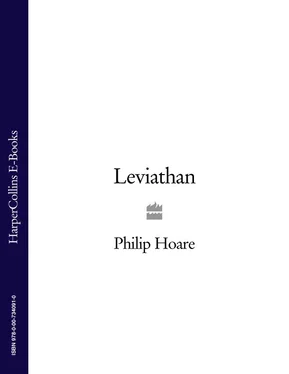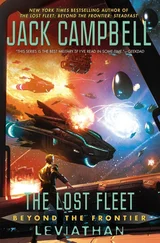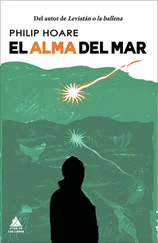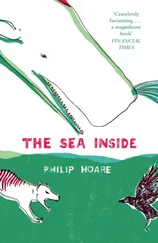LEVIATHAN
or ,
The Whale
Philip Hoare
Copyright Contents Title Page Copyright Dedication Prologue I Soundings II The Passage Out III The Sperm Whale IV A Filthy Enactment V Far Away Land VI Sealed Orders VII The Divine Magnet VIII Very Like a Whale IX The Correct Use of Whales X The Whiteness of the Whale XI The Melancholy Whale XII A Cold War for the Whale XIII The Whale Watch XIV The Ends of the Earth XV The Chase Keep Reading Bibliography Picture Credits Acknowledgements Index Also by Philip Hoare About the Publisher
Fourth Estate
An imprint of HarperCollins Publishers Ltd. 1 London Bridge Street London SE1 9GF
www.harpercollins.co.uk
First published in Great Britain in 2008 by Fourth Estate
Copyright © Philip Hoare 2008
Philip Hoare asserts the moral right o be identified as the author of this work
A catalogue record for this book is available from the British Library
All rights reserved under International and Pan-American Copyright Conventions. By payment of the required fees, you have been granted the non-exclusive, non-transferable right to access and read the text of this ebook on screen. No part of this text may be reproduced, transmitted, downloaded, decompiled, reverse engineered, or stored in or introduced into any information storage and retrieval system, in any form or by any means, whether electronic or mechanical, now known or hereinafter invented, without the express written permission of HarperCollins ebooks
HarperColins Publishers has made every reasonable effort to ensure that any picture content and written content in this ebook has been included or removed in accordance with the contractual and technological constraints in operation at the time of publication
Source ISBN: 9780007230143
Ebook Edition © AUGUST 2009 ISBN: 9780007340910
Version: 2017-01-04
For Theresa
Title Page LEVIATHAN or , The Whale Philip Hoare
Copyright
Dedication
Prologue
I Soundings
II The Passage Out
III The Sperm Whale
IV A Filthy Enactment
V Far Away Land
VI Sealed Orders
VII The Divine Magnet
VIII Very Like a Whale
IX The Correct Use of Whales
X The Whiteness of the Whale
XI The Melancholy Whale
XII A Cold War for the Whale
XIII The Whale Watch
XIV The Ends of the Earth
XV The Chase
Keep Reading
Bibliography
Picture Credits
Acknowledgements
Index
Also by Philip Hoare
About the Publisher
There Leviathan , Hugest of living creatures, on the deep Stretch’d like a promontory sleeps or swims , And seems a moving land; and at his gills Draws in, and at his breath spouts out a sea .
John Milton, Paradise Lost , quoted in title page to the first, English edition of Moby-Dick
For thou didst cast me into the deep,
Into the heart of the seas,
And the flood was round about me;
All thy waves and billows passed over me.
Jonah 2:3
Perhaps it is because I was nearly born underwater.
A day or so before my mother was due to give birth to me, she and my father visited Portsmouth’s naval dockyard, where they were taken on a tour of a submarine. As she climbed down into its interior, my mother began to feel labour pains. For a moment, it seemed as though I was about to appear below the waterline; but it was back in our Victorian semi-detached house in Southampton, with its servants’ bell-pulls still in place and its dark teak staircase turning on itself, that I was born.
I have always been afraid of deep water. Even bathtime had its terrors for me (although I was by no means a timid child) when I thought of the stories my mother told of her own childhood, and how my grandfather had painted a whale on the outside of their enamel bathtub. It was an image bound up in other childish fears and fascinations, ready to emerge out of the depths like the giant squid in the film of Twenty Thousand Leagues Under the Sea , with its bug-eyed Nautilus, Kirk Douglas’s tousled blond locks and stripy T-shirt, and its futuristic divers walking the ocean floor as they might stroll along the beach.
I thought, too, of my favourite seaside toy – a grey plastic diver which dangled in the water by a thin red tube through which you blew to make it bob to the surface, trailing little silver bubbles – but which also reminded me of those nineteenth-century explorers enclosed in faceless helmets and rubberized overalls, their feet anchored by lead boots. And in my children’s encyclopædia, I read about the pressurized bathysphere, an iron lung-like cell in which men descended to the Marianas Trench, where translucent angler fish lured their prey with luminous growths suspended in front of their gaping, devilish jaws. I was so scared of these monsters that I couldn’t even touch the pages on which the pictures were printed, and had to turn them by their corners.
Southampton’s municipal swimming baths, with their verdigris roof and glass windows, were a place of public exposure and weekly torture on our school trips there. Ordered to undress, revealing chicken flesh and, on older boys, dark sprouting hair, we shivered in ill-fitting trunks as we stood on wet tiles which, I was told, could harbour all sorts of disease. Padding out into the echoing arena where weak winter sun threw mocking ripples on the ceiling, we lined up to plunge in the shallow end, ordered into the water by our PE master, a wiry-haired man with an imperious whistle on a cord around his neck.
Once in, we were told to hold the hand-rail and kick away with our feet. With my fingertips turning blue with the cold and my tenacious grip, I created enough white water to seem proportionate to my effort, although it was really an endeavour to disguise my ineptitude. Then we took a polystyrene float, crumbling at the edges like stale bread, and were instructed to launch ourselves across. The far side was as unattainable as Australia to me, and the reward for success – a piece of braid to sew on one’s trunks – was a trophy I was as likely to win as an Olympic medal.
I never did learn to swim. The barked instructions, the fear of sinking to the tiled bottom along with the old sticking-plasters and hair-balls, combined to create an unconquerable anxiety. I somehow associated swimming not with pleasure, but with institutions, hospitals, conscription and war, with being ordered to do things I didn’t want to do. At the beach I’d make my excuses when my friends ran into the sea, pretending I had a cold. Throughout my childhood and my teenage years, I lived with this disability; I even came to celebrate it, perversely, as a strength.
It was only later, living alone in London in my mid-twenties, that I decided to teach myself to swim. In the chilly East End pool, built between the wars, I discovered that the water could bear up my body. I realized what I had been missing: the buoyancy of myself. It was not a question of exercise: rather, it was the idea of going out of my depth, allowing something else to take account for my physical presence in the world; being part of it, and apart from it at the same time. In a way, it was a conscious reinvention, a means of confronting my fears.
For the poet Algernon Swinburne, the sea was a sensuous vice, one that he revealed in his only novel, Lesbia Brandon , set in his childhood home on the southern coast of the Isle of Wight, with its dramatic rocky cliffs overlooking the waters of the English Channel. In the book – not published until 1950, forty years after Swinburne’s death – its young hero, Herbert, learns to love the water: ‘all the sounds of the sea rang through him, all its airs and lights breathed and shone upon him: he felt land-sick when out of the sea’s sight, and twice alive when hard by it.’ He even dares the waves ‘like a young sea-beast … pressed up against their soft fierce bosoms and fought for their sharp embraces; grappled with them as lover with lover’.
Читать дальше












